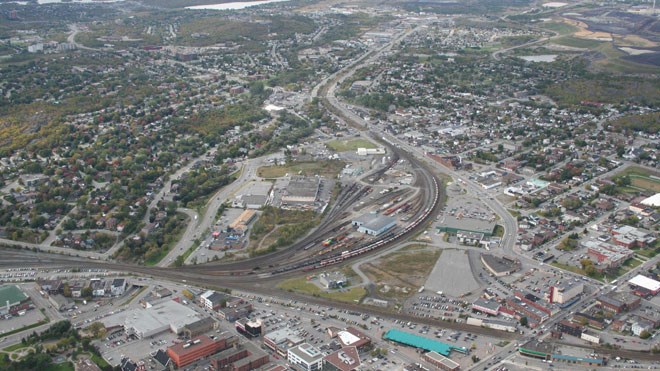Greater Sudbury ranks as one of the most competitive cities in the world when it comes to attracting business, finishing 14th out of 107 in a global ranking released by KPMG this week.
Sudbury finished 10th out of the 15 major cities in Canada that were evaluated for KPMG's Competitive Alternatives study, which compares business costs and other competitiveness factors in major cities in 10 countries.
The study is conducted every two years, and acts as an independent resource for Canadian and international companies scouting business locations. In all, 26 factors are used to determine the ranking, including energy costs, tax rates, utilities, labour costs, CPP and EI, business and leasing costs.
Oscar Poloni, a partner with KPMG in Sudbury, said the results shows the city ranks well when it comes to the ability to attract new business.
“From our perspective, that's a great news story,” Poloni said. “It shows Sudbury can be competitive from a costing perspective.”
Within Canada, the survey found Sudbury has the third lowest office leasing costs, and has below-average natural gas costs. Property taxes, however, are relatively high, as are employer-paid benefits costs, electricity and factory leasing costs.
While that puts the city at a disadvantage for manufacturing, where we finished 14th, Sudbury had better results in the services sector, ranking eighth.
“Among the 15 Canadian cities, Sudbury ranks fifth for digital services and ninth for (research and development) services – besting its 10th place overall rank in these two subsectors,” the report concluded.
“I think that's significant, because it demonstrates Sudbury can be cost competitive when competing for businesses against other communities,” Poloni said. “We recognize there are other factors that come into play, not just cost-competitiveness. But from that perspective, we think Sudbury ranks fairly well.”
However, the survey includes a number of costs cities have little control over, such as energy rates. That means Sudbury is in a better position to attract certain industries than others, depending on the factors making up the business model.
“Where (Sudbury's) high in electricity costs, factory leasing costs – those will naturally be more significant to a manufacturing company than to a service company,” Poloni said.
“But in the service sector, for example, you're heavily weighted against salary. In the manufacturing sector, less so, because other cost factors come into play – materials, transportation, that type of stuff.”
If costs are significantly higher in a particular area compared to peer cities, a municipality could focus on ways to reduce those rates, Poloni said. But overall, variations tend to be relatively minor.
“So if you reduce those costs, you may not get the return, the bang for your buck,” he said. “What you find when you go through the report is that there are additional sections on non-financial considerations that companies look for when they locate or relocate into a specific city.
“So you're going to want to pay attention to those other, non-financial issues, because those are areas where you can influence – (availability of) skilled labour, transportation networks – all the things you need to be successful. So there's no need to lower costs if you're missing all the other elements.”
Poloni said the survey is a popular tool for businesses that are scouting potential locations, because it provides unbiased data on those cities.
“We and other firms involved in the study will go out and collect the information, and it's done independent of the cities,” he said. “We may contact a municipality and ask them what their property tax rate is, but they're just providing specific cost estimates.
“What it's really intended to do, for the cities that are listed in the guide, is to give them a sense of where they stack up and how they compare.”
The KPMG study focuses on business locations across North America, as well as leading mature market countries in Europe and Asia. More than 100 cities in 10 countries were surveyed: Australia, Canada, France, Germany, Italy, Japan, Mexico, the Netherlands, the United Kingdom, and the United States. For 2014, Competitive Alternatives further expands its coverage in America, and for the first time includes every U.S. city with a population of two million or more.
Join Sudbury.com+
- Messages
- Post a Listing
- Your Listings
- Your Profile
- Your Subscriptions
- Your Likes
- Your Business
- Support Local News
- Payment History
Sudbury.com+ members
Already a +member?
Not a +member?
Sign up for a Sudbury.com+ account for instant access to upcoming contests, local offers, auctions and so much more.
